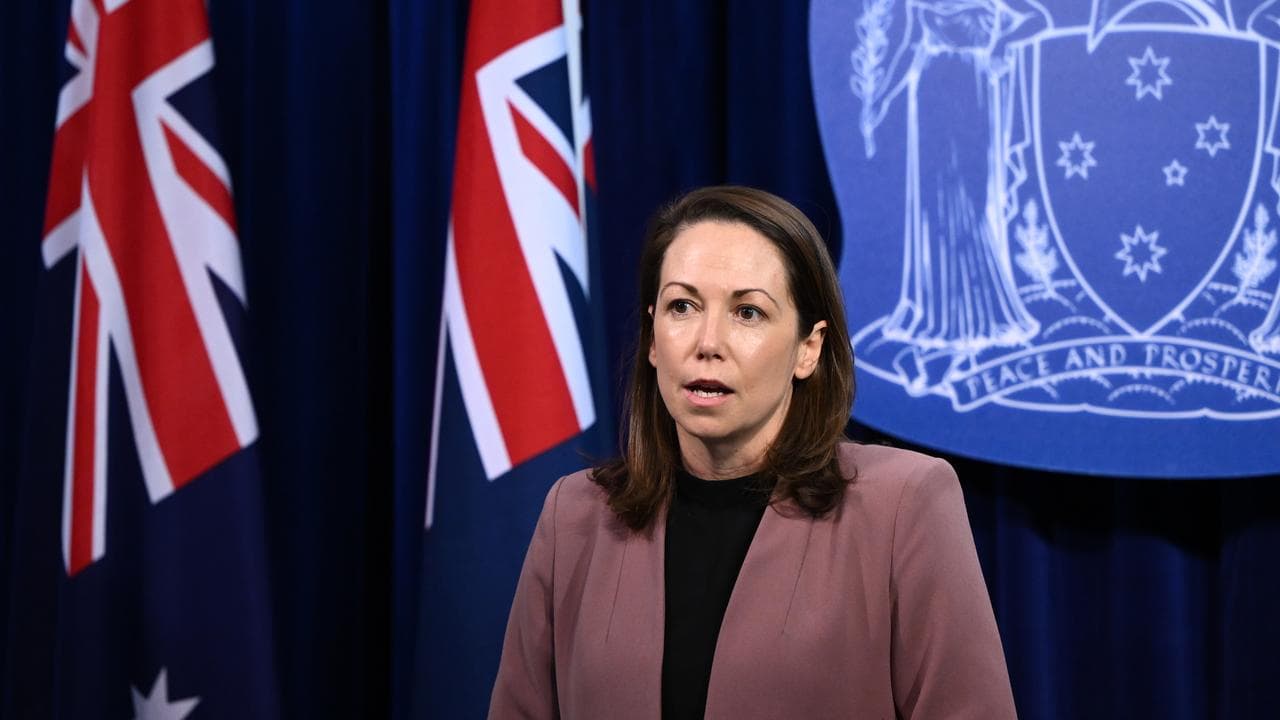
Where long-time Victorian treasurer Tim Pallas failed, his replacement says she will try again.
Two months after becoming the state's first female treasurer, Jaclyn Symes has ordered an independent review into the Victorian public service before the state budget in May.
The review will be led by Helen Silver AO, a banking executive who served as Department of Premier and Cabinet secretary under former premiers John Brumby and Ted Baillieu.
She has been tasked with axing between 2000 and 3000 jobs - about five to six per cent of the public service workforce - to find several billion dollars of savings.
The looming cuts would pare back jobs numbers to pre-pandemic levels, but frontline roles such as teachers, nurses, police and child protection workers are not within the review's scope.
Its terms of reference, however, include an examination of executive numbers and covers recurrent and operational spending.
Ministerial offices won't be immune, but integrity agencies and the department that manages parliament are in the clear.
The government wants to identify overlaps, inefficiencies, functions and programs that can be streamlined or eliminated, as Ms Symes tries to address a "recurrent problem" in the budget.
"There'll be hard decisions for government to make but I'm determined that this work can’t be for nothing," she told reporters at state parliament on Thursday.

Ms Silver will hand in interim recommendations for Ms Symes’ first budget on May 20, which was delayed until after the upcoming federal election.
A final report is due by June 30 and will be released alongside a government response.
Mr Pallas, the state's longest-serving standalone treasurer, sought to cut 3000 to 4000 public service jobs in the 2023/24 Victorian budget.
Instead, employee numbers grew from 54,760 to 54,839 over the financial year and the total wage bill is forecast to rise from $38.3 billion in 2024/25 to $41.6 billion in 2027/28.
Mr Pallas tried to make public hospitals tighten their belts in 2024 but was forced to come to the rescue with a $1.5 billion, one-year lifeline following backlash.
"Previous attempts haven't worked," Ms Symes said.
The public service has already delivered more than $5 billion in savings in the past three budgets, Community and Public Sector Union state secretary Karen Batt said.
“Crazy, ill-thought-through proposals end up costing the government more as our population booms and demand for services grows," she said.
A Parliamentary Budget Office costing, released by the opposition on Thursday, showed employee expenses have almost double since Labor came to power in 2014.
The wage bill was $18.8 billion across the 2014/15 financial year but has grown 7.5 per cent on average each year since.
"The Victorian government has consistently underestimated employee expenses over the past 10 years," the independent report said.
Shadow treasurer James Newbury described the government review as a "total hoax" but did not offer an alternative solution to fixing the problem.
"All of the figures that the government has tried to throw out today are more smoke and mirrors," he said.
The Greens want the government to slap bigger taxes on billionaires and big corporations such as banks instead of cutting public services.
Victoria’s net debt is on track to hit $187.8 billion by mid-2028, pushing up interest expenses to $9.4 billion annually.
Debt was weighing heavily on the state and reducing costs was a better method of tackling it than raising taxes on businesses and residents, Victorian Chamber of Commerce and Industry chief executive Paul Guerra said.
"It's never a good environment where we're looking at removing jobs," he said.




